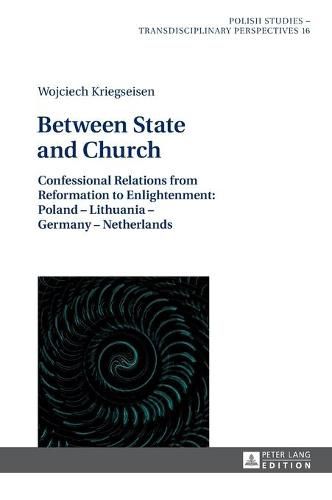Readings Newsletter
Become a Readings Member to make your shopping experience even easier.
Sign in or sign up for free!
You’re not far away from qualifying for FREE standard shipping within Australia
You’ve qualified for FREE standard shipping within Australia
The cart is loading…






This title is printed to order. This book may have been self-published. If so, we cannot guarantee the quality of the content. In the main most books will have gone through the editing process however some may not. We therefore suggest that you be aware of this before ordering this book. If in doubt check either the author or publisher’s details as we are unable to accept any returns unless they are faulty. Please contact us if you have any questions.
The different theoretical notions and practices of the relations between the state and religious communities in early modern Europe constitute one of the most interesting problems in historiography. Moving away from a simple toleration versus non-toleration dichotomy, the author sets out to analyse the inter-confessional relations in selected European territories in a longue duree perspective, between Reformation and Enlightenment. Outlining the relations between the state and the different Churches (confessions) in the Polish-Lithuanian Commonwealth, the Holy Roman Empire of Germany, and the Northern Netherlands serves to highlight the specificity of Northern Netherlands serves to highlight the specificity of free (non-absolutist) composite states, where the particularly complex process of defining the raison d'etat determined the level of religious toleration that was politically feasible and socially acceptable.
$9.00 standard shipping within Australia
FREE standard shipping within Australia for orders over $100.00
Express & International shipping calculated at checkout
This title is printed to order. This book may have been self-published. If so, we cannot guarantee the quality of the content. In the main most books will have gone through the editing process however some may not. We therefore suggest that you be aware of this before ordering this book. If in doubt check either the author or publisher’s details as we are unable to accept any returns unless they are faulty. Please contact us if you have any questions.
The different theoretical notions and practices of the relations between the state and religious communities in early modern Europe constitute one of the most interesting problems in historiography. Moving away from a simple toleration versus non-toleration dichotomy, the author sets out to analyse the inter-confessional relations in selected European territories in a longue duree perspective, between Reformation and Enlightenment. Outlining the relations between the state and the different Churches (confessions) in the Polish-Lithuanian Commonwealth, the Holy Roman Empire of Germany, and the Northern Netherlands serves to highlight the specificity of Northern Netherlands serves to highlight the specificity of free (non-absolutist) composite states, where the particularly complex process of defining the raison d'etat determined the level of religious toleration that was politically feasible and socially acceptable.